- Home
- Bryce Courtenay
Sylvia Page 25
Sylvia Read online
Page 25
I did not feel I had the fortitude to be a nun, although I greatly desired to do God’s work among the poor. Father Hermann preached that the spiritual need of the poor was far greater than their need for food and care, that with their souls once prepared for paradise where they would never know hunger, it was far better for them to die. ‘They are no different to mangy bare-ribbed dogs that scavenge in the gutters, Sylvia. But their souls, once saved, are eternal,’ he’d piously explained. ‘For them to continue to live is only to perpetuate their misery. When they die they enter paradise!’
But, while I could not argue with a priest, I also could not accept his sanctimonious logic. Children with their bellies empty, their tiny mouths covered with blisters and sores, with suppurating ulcers on their legs and arms, were in my opinion ill-equipped to accept God’s promise of eternal life. They beheld only greed and the devil’s work around them and saw no sudden virtue in the promise that the hunger in their souls would be satisfied while they continued to suffer empty bellies and abject misery. As a nun I would be cloistered in a convent and, while hopefully studying, would have no access to the street children I truly loved, whereas, if I should prosper in business, I would have the means to feed and care for the poor and also have access as the rich do to further learning.
‘I am grateful for all you and Master Israel have done for me, Frau Sarah,’ I said, tearfully. ‘This new thing is most tempting, but I must pray upon it.’
Frau Sarah sighed. ‘I told my husband it would be thus. Why will you never learn that God helps those who help themselves, Sylvia? We have learned that others, the priest that teaches you and the other one with whom you work, wish you to become a nun. Master Israel and I, who seldom agree on much, are both agreed that to shut a mind such as you possess in a cloister is a sin against God.’
‘Hush, Frau Sarah, that is blasphemy!’ I cried, alarmed.
‘Not to a Jew, Sylvia. To a Jew, to squander the talents God has given you, that is blasphemy!’
‘To be the bride of Jesus Christ is not a waste of my life!’ I exclaimed.
‘Aye, exactly what Master Israel said you would say. “Sylvia is of a brilliance seldom encountered, but she will waste it on God and the poor. Both of whom will always be with us, but, alas, she will not,” he lamented.’ Frau Sarah pulled herself up so that she sat straight-shouldered and stiff-necked. ‘Sylvia, I beseech you, please think upon this carefully. What you decide will change your life forever. Do not lock all the glory that is thy God-given talent away in a convent.’
‘But if it is God-given, then should I not return it?’ I asked.
‘Titch, you know what your trouble is, Sylvia Honeyeater? You have spent too much time with my husband! Few things in this world are wrought by logic alone and you begin to think like a man! It is men who want to incarcerate you in a convent, not God! Are women not put upon sufficiently by men and are we not prey to their many vicissitudes? Can you not then be a torchbearer for us? Can you not be your own self? Or must you always be servant to the whims of men?’
‘Is not running a brothel being servant to the whims of men?’ I asked quietly.
‘Nay! It is simply profiting from their weakness! This is every woman’s given right,’ she shouted, her hands flying above her head in exasperation at my foolishness.
‘I will think about it, Frau Sarah,’ I said softly.
CHAPTER EIGHT
The Reluctant Bride of Christ
IF YOU CAN, IMAGINE my confusion and trepidation when I met with the two priests, the zealot and the scribe. Neither knew my true nature with all its faults but thought me halfway to being a celestial creature. To them I was the Petticoat Angel and they had witnessed the Miracle of the Birds (so-called) and the Miracle of the Blood on the Virgin’s Rose (also so-called) and they were quite certain that I was intended as a bride of Christ.
Moreover, that I should have an opinion on the matter did not even occur to them.
The meeting took place in a room beside the sacristy of St Martin’s and I arrived a few minutes before Father Hermann so that I might apologise for missing my Latin lesson the previous day, when Nicholas had stayed so long in his mushroom trance.
Father Paulus laughed instead of chiding me. ‘Thank you, my child. I confess I took the opportunity to sleep and dreamed of bells, accursed bells! I hope only that there are no bells in heaven.’
Father Hermann arrived and Father Paulus opened the proceedings, his voice quiet and pitched low. ‘Sylvia, we have consulted the bishop in the matter of the convent where you will become a novice and he has personally instructed us that it is to be the Benedictine convent, which stands close to the monastery.’
Father Hermann clapped his hands. ‘How fortunate you are, Sylvia,’ he boomed. I could see Father Paulus wince, for his was a confidential tone, whereas Father Hermann’s peasant voice could easily be heard in the furthermost pew in the main church. ‘The convent has a large garden and its woods abut the monastery’s grounds and the nuns are, for the most part, fine women of noble birth.’
Ha! I thought to myself. Who do not dirty their hands with work.
‘The monastery has the finest library in Germany,’ Father Paulus continued. ‘While you are yet a novice and must endure what all who take the vow must undergo, the abbess will welcome you. The abbot has received a letter from the bishop himself asking that you be given special dispensation to receive the finest tuition available at the hands of Brother Dominic, who is a famous scribe and scholar known to prepare missives for the Pope in Rome. He will put this before the abbess. I have also written to the abbess extolling your virtues. It is in the name of Father Hermann and myself and doth inform the abbess of the convent of your proclivities.’
I was at once overwhelmed. ‘Did you not tell the bishop I was but a peasant maid, Father?’ I asked, all the while hoping that their letter to the abbess was plainly put and without embellishment.
‘Aye and no,’ Father Paulus replied. ‘It is not usual for the Church to regard a woman as worthy of scholarship but we told the archbishop that we believed you would become another Abbess Hildegard, a female scholar of great note. In the matter of learning you can no longer count yourself a peasant. Besides, the bishop has been told of the sign of the fish, and says he has heard you sing, and has been told by many of the rich burghers and nobles in Cologne who have also heard you that they would welcome you into their homes as a guest. Sylvia, you are known to have dainty manners and to converse on topics in a modest, though by no means superficial, way. You now speak well enough three Bible languages, Latin, Greek and Hebrew, and also the language of the infidel. There are only a few scholars within the Church who can match this. Perhaps the time has come to eschew your peasant beginnings and assume the mantle of a young scholar who has no social position but, if proof is given that they have the proclivity and the intellect, may eventually move freely among all, from peasant to Pope.’
Father Hermann, perhaps feeling himself as the senior priest unable to contribute to this soliloquy, quite suddenly and unexpectedly protested. ‘My learned friend Father Paulus forgets that our Lord was a carpenter from common stock. It is no shame to be a peasant. I myself have little learning but move, as did our Lord, with equanimity among all,’ he growled.
Father Paulus seemed almost physically struck by his rebuke. ‘No shame, Father. Only for the most part a lack of opportunity, many a fine mind may have been lost to us,’ he explained in a voice all but disappeared.
‘Ha! I have not found the lack of learning a hindrance! Fine minds do not need learning unless they crave it, and in my experience few women, even those of noble birth, put much store in books and are better for it. I grew up in poverty but was afforded instruction by the monks. I hated school and found it a waste of God’s time and desired only the consolation of the Virgin Mary. Am I then lost?’ Father Hermann asked rhetorically.
‘No, no, of course not, you have a fine and pious mind,’ Father Paulus replied, anxious not to
aggravate the senior cleric any further.
‘Perhaps Father Paulus means that a peasant, should he be most gifted, has a difficult path if he does not possess the good fortune to receive the guidance that thee and he do provide for me? Though I do not think myself worthy – without your help I could achieve nothing,’ I said as quickly as I might to forestall a further quarrel between the two of them. It was, of course, not true – it was Master Israel who had guided my tender and hungry mind and set it upon the path of learning.
‘Hurumph! Thou didst perform two most worthy miracles! That is why you go to do God’s work in a convent. The truly blessed of God are of the spirit, not the mind.’
‘Aye, it is truly thus with thee, Father. Did not the Christ Child receive an apple from thy hands and was there not an annunciation from the Virgin to name you Joseph, her earthly husband?’ I said in a further attempt at amelioration.
‘Ha! True my child! That did not require me to be learned.’ Then he added sanctimoniously, ‘Blessed are the pure in heart: for they shall see God.’
I glanced over to Father Paulus who looked mortified for the upset he had caused. I turned and smiled sweetly at Father Hermann. ‘Father, though you are indeed a man of the spirit, I think you are over-modest. If you lack so much of learning as you claim, how then could you write the magnificent hymn ‘Summi Regis cor aveto’, the first hymn to the Sacred Heart?’ I did not allow him to reply but began immediately to sing this somewhat indifferent hymn until it was completed. By which time he had calmed down and wore a smile upon his formerly frosted face.
‘Aye, you are a sly one, Sylvia,’ he declared, suddenly laughing. Then turning to Father Paulus, ‘And I am stubborn as an ox led to the plough on a late-autumn morning. You are right, my brother in Christ, this one must have every opportunity, both of the spirit and then also of the mind. Although I fear too much learning may rob her of her innocence. Yet she has humility and a reconciling tongue and this may be enough to save her from the scribes who have no faith in Jesus and would compose the world out of facts alone. How do facts explain the scarlet blood on the Virgin’s snow-white rose? How do they explain the charming of the birds from the trees or the appearance of an angel to the three whores?’
Father Hermann was back in his stride and I thought of Frau Sarah’s lessons in pandering to the male: ‘Remember always to bow to their superiority, exclaim at their profundity, compliment their masculinity and sheath your sharpened tongue.’ How could I possibly tell the two priests that I might prefer to run a brothel than enter a convent? I had all but made up my mind to accept Frau Sarah’s offer, but now the opening words from Father Paulus had left me confounded. To receive tuition from a famous scholar was an opportunity I would be incredibly foolish to miss.
And so the decision was made, not I fear for the gentle and precious love of Jesus, but for the curiosity of learning and the ability to reason. Already I had acquired sufficient learning to know that I did not want to be told what I should believe. All my life I had been instructed in what was sinful and false and what was true and glorifying when my heart and mind often told me this was not true. My mind craved reason and not Father Hermann’s trust in faith alone and I could not see why this should confound my faith in Jesus. I told myself that I believed in miracles as the true manifestation of God’s divine presence, but unlike Father Hermann, they must first defy explanation. They must be subject to the most rigorous examination of the mind.
I was beginning to discover that few things in the world I lived in were as I was told they were, or I saw with my own eyes their contradiction. In my own small world, the birds charmed from the trees, the rats in the village, the scene with the three whores in the bathhouse, the blood on the rose, Nicholas and the magic mushrooms and the shrine of bread and fish all possessed logical explanations. Even the coincidence of the birthmark on my back, all were too quickly and with a lack of intellectual examination declared as signs and miracles and all because of ignorance and superstition.
I had come to understand that those who have power invent those truths that will sustain their power and suppress any truth that would destroy it. The examples of this were all about me, yet my ignorance had blinded me. For instance, the hate we have in our hearts for someone not of our own society or nation is inculcated within us in childhood, so that we will know only the perverted version of the truth those in power would want us to possess. Jews are vermin and Christ-killers and may not be trusted as they will lie and cheat and steal your infant and use its blood for their Passover ritual. To hate the Jews who killed our Lord and Saviour is a conviction that pervades Christianity. These are the ‘truths’ with which we are born. But, if the Jews had not killed Jesus, how then could there be Christianity? If there was no Christian faith, how then would our souls be granted eternal life? Should we not then be grateful to the Jews for giving us our faith and our God? Again, if Christ’s death was preordained by God the Father, how then are the Jews guilty if they were merely following His instructions for the salvation of mankind? How do I explain, as Master Israel pointed out to me, that we burn heretics and that to the Jews of that time Christ was seen as a heretic and thus, using our own spiritual logic, was worthy of crucifixion? How do I explain the kindness Frau Sarah and Master Israel showed to me if all Jews are vile, greedy child-killers? Why is it that we may with impunity murder the infidel’s women and children without guilt or fear of God’s retribution, for they have no soul and so, we are told, are not in God’s eyes human. How is it then that the Syrian, Persian and Egyptian courtesans in Ali Baba’s are most loving, kind and generous and care greatly for my welfare? Must I believe they are animals without a soul, a dog that, even though kicked by its master, returns to lick his hand?
Master Israel told how, before the First Crusade, when the Christians conquered Jerusalem and slaughtered all the infidels until the alleys ran to the conquerors’ knees with the blood, the Christian, Jew and Muslim lived peaceably together, that all religions were free to worship without hindrance. The Holy Sepulchre was open to any Christian pilgrim who wished to sojourn and worship there.
Was the Holy Sepulchre more holy because it was drenched with the blood of Christian revenge? Is it now less holy because it is once more under the guardianship of the infidel? Is God’s mercy best illustrated when the Pope announces that a crusade endured in an attempt to regain the Holy Sepulchre will lead to the forgiveness by God of all our past sins? Is it not a denial of God’s mercy that, with their sins forgiven, men such as my father return to their villages to commit even greater evil in His sight? Yet with a further crusade completed they may be once again forgiven?
It was the Lord Jesus Himself who said, ‘The truth shall make thee free.’ Realising that our true enslavement was ignorance I decided I would dedicate my life to finding the truth. Power, I could clearly see, feeds on ignorance and the truth is nourished by minds that are open to enlightenment. In the end, the price I would pay by being a nun cloistered in a convent was a small one if I should know the truth. It would be a truth not gained by reason alone, for reason cannot explain the infinite nature of God or the nature of truth or the truly miraculous. I would use reason guided by the hand of God Almighty to find the truth. I was not to know at the time that in the name of God’s truth, I would help to commit a disaster of such unconscionable ignorance that I would suffer its awful guilt for the remainder of my life.
So it was with these high-minded ideals and, looking back upon it, not a small measure of sanctimonious virtue, that I entered the Benedictine convent. However, before doing so, the girls at Ali Baba’s wished to give me a grand farewell party that, they said, they had been forced to delay some days, because a delegation from Munich on business had booked the winkelhaus for its exclusive use while in Cologne. So I was forced to plead five extra days in the city from Father Hermann, who was to be my escort to the nunnery.
Frau Sarah insisted that I wear a gown she’d made of peacock-blue Shantung silk obtained from Ca
thay, the most expensive in her collection. To this she added pretty slippers of a matching colour with a clutch of violets embroidered on the toe of each. She had fussed and tucked until the beautiful gown fitted every curve of my body most seductively. ‘You are a beautiful young woman and ripe for plucking, Sylvia,’ she sighed, then added, ‘Alas, no man will possess this treasure now.’ Then she stood aside and looked at me and declared my hair needed further attention and so she treated it with chamomile, then taking up a brush she brushed until it was as burnished as the morning sunlight. Very much pleased with the result she stood back to examine me, then she asked, ‘Now Sylvia, I beseech you, you are as pretty as an angel. Just this once, do not take your stave.’
I froze. The stave was my talisman, my protector, almost my Holy Grail. It lay beside my pallet when I slept. It was with me when I attended mass, and always within arm’s length when I sang or took my lessons. It was in my right hand when I walked. Father John’s stave had become a part of me, as if an additional limb – without it I was naked in spirit and vulnerable. Frau Sarah saw my shock at her suggestion but persisted still.
‘Sylvia, tonight there be no maid in Germany more beautiful or better dressed than thee. You are a princess and if I should have had a daughter I would pray to God that she looked as you do now. I fear if my breathing should increase but a little it would see you rise as some lovely ephemeral creature into the air. I have asked a hundred times or even more in the years past that you leave your stave behind and so announce your lightness and beauty, but you have ever resisted and denied me. Now, just this once, this last time I may ever see you and as a departing gift to me, I beg you, do not take that ugly stick tonight.’
‘Aye, if you wish,’ I said in a whisper. Frau Sarah had done so much for me and I simply couldn’t refuse her request, though my heart beat furiously.

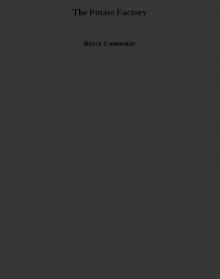 The Potato Factory
The Potato Factory The Power of One
The Power of One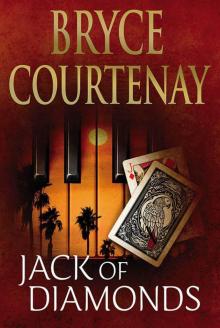 Jack of Diamonds
Jack of Diamonds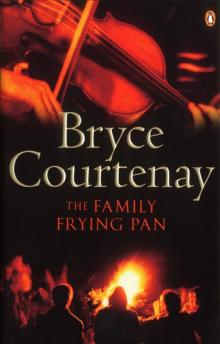 The Family Frying Pan
The Family Frying Pan April Fool's Day
April Fool's Day Smoky Joe's Cafe
Smoky Joe's Cafe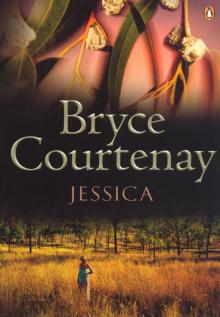 Jessica
Jessica Matthew Flinders' Cat
Matthew Flinders' Cat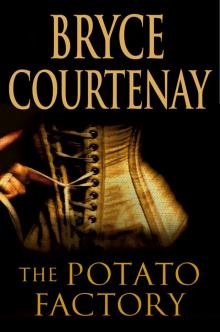 Potato Factory
Potato Factory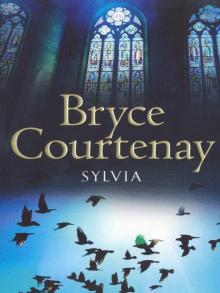 Sylvia
Sylvia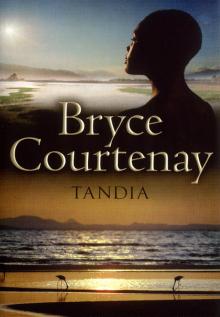 Tandia
Tandia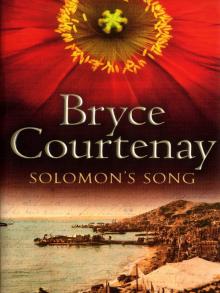 Solomon's Song
Solomon's Song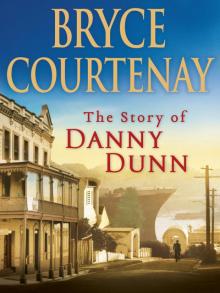 The Story of Danny Dunn
The Story of Danny Dunn Four Fires
Four Fires Whitethorn
Whitethorn Tommo and Hawk
Tommo and Hawk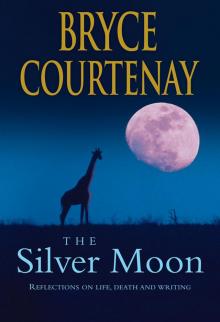 The Silver Moon
The Silver Moon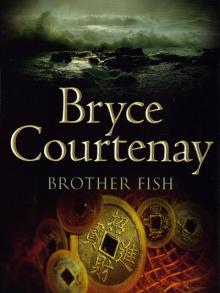 Brother Fish
Brother Fish FORTUNE COOKIE
FORTUNE COOKIE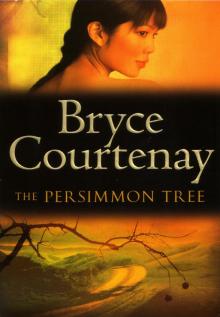 The Persimmon Tree
The Persimmon Tree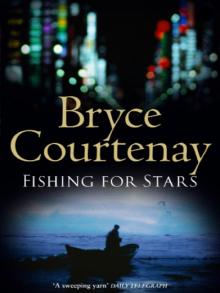 Fishing for Stars
Fishing for Stars